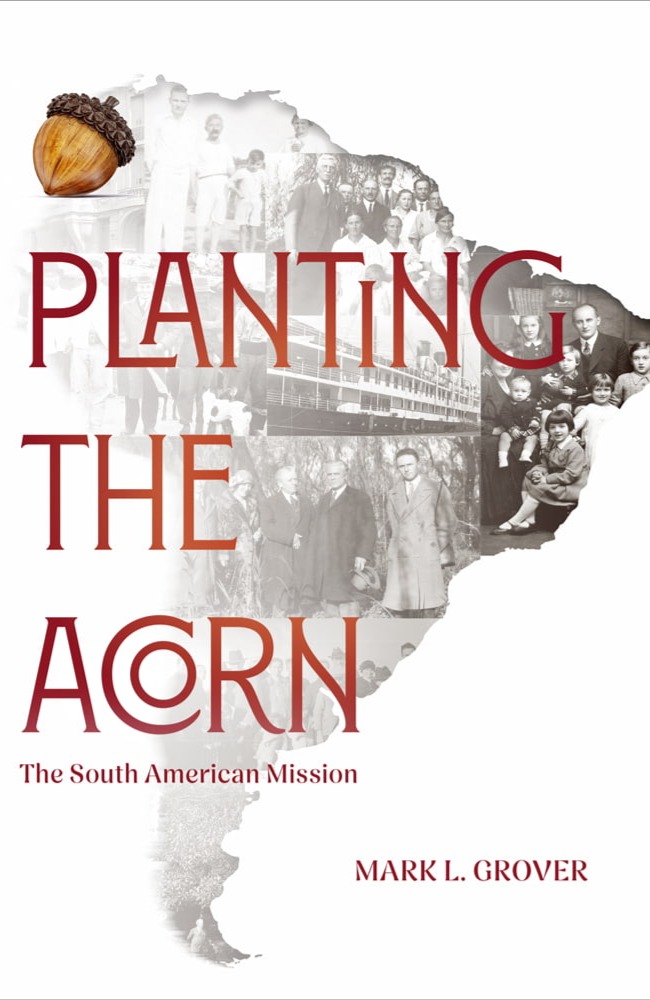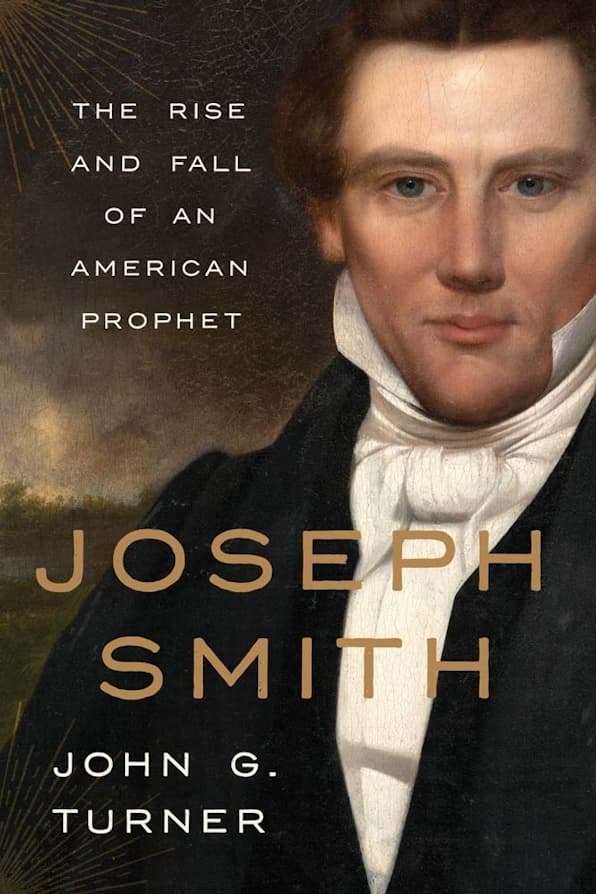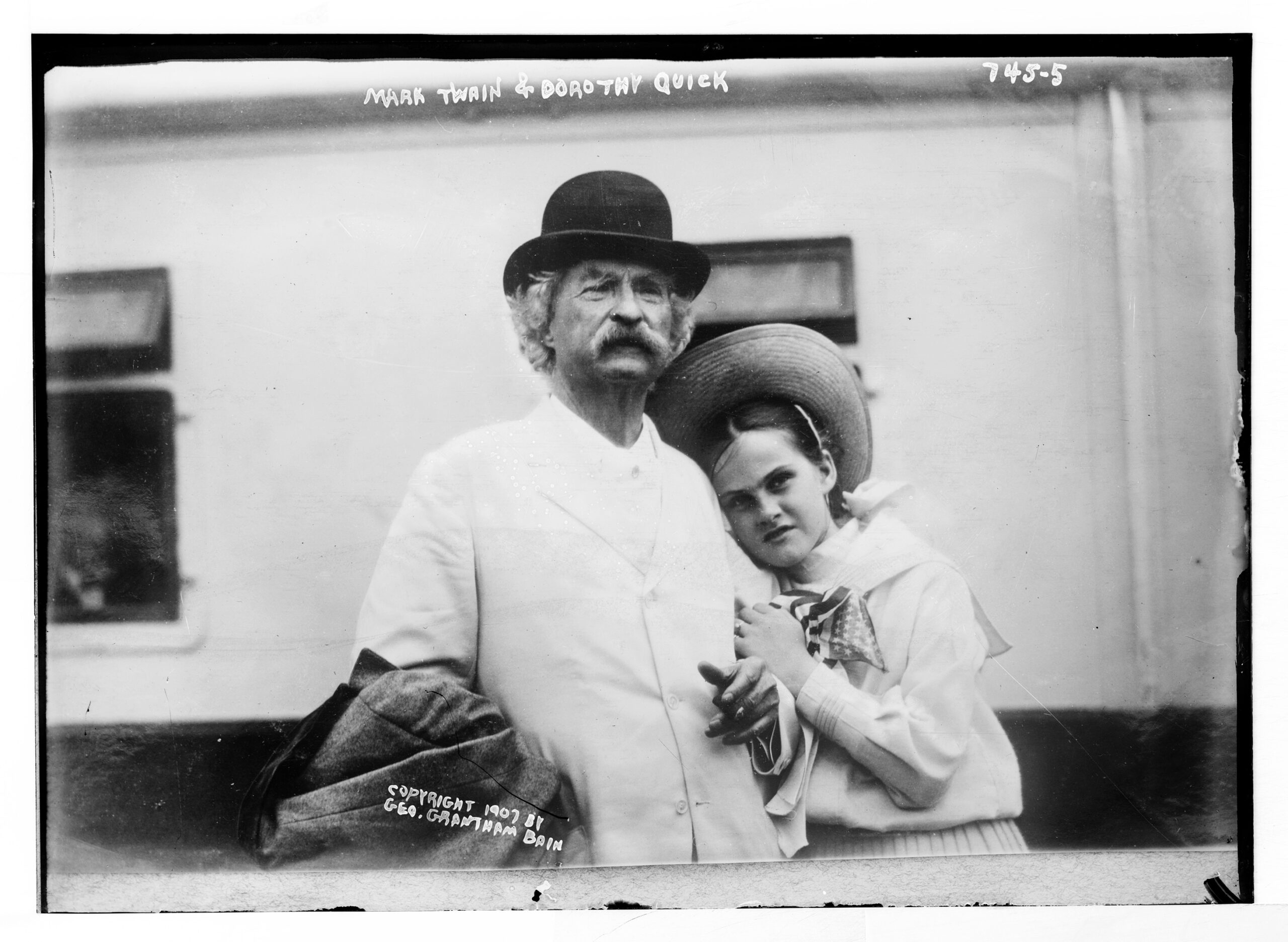Category: Latter-day Saint Thought
-

CFM 7/21-7/27: Poetry for “Where Much Is Given Much Is Required”
The idea behind “Where Much is Given, Much is Required” goes beyond just the idea of responsibility or accountability. There is also in the phrase a sense of equity and care for others that isn’t necessarily part of responsibility. The idea is clearly the opposite of the images we see of excessive displays of wealth,…
-
Disillusionment: Spiritual Experiences Not Seeming to Work Out
“O God, where art thou? And where is the pavilion that covereth thy hiding place?… How long shall they suffer these wrongs and unlawful oppressions, before thine heart shall be softened toward them, and thy bowels be moved with compassion toward them?” (DC 121:1, 3). This wasn’t how it was supposed to turn out. They…
-
![[Mental Illness] The Weight of Happiness](https://timesandseasons.org/wp-content/uploads/2025/07/sadness-and-happiness-in-the-air-giorgi-khatiashvili-1.jpg)
[Mental Illness] The Weight of Happiness
In America we are obsessed with individual happiness. Like, obsessed. From the Declaration of Independence to prosperity gospel to the multi-billion dollar self-care industry, personal happiness has become less of an experience and more of a measure. Happiness has become something that is deeply individualistic, and serves as a sign that you are doing something…
-
From the Archive: Seventies Blessings
I’m working hard on my Zerah Pulsipher biography and thought it would be fun to share a few items that I found interesting or fun. Today’s post focuses on blessings given to members of the newly-formed quorums of the seventies during the 1830s.
-
How Do We Know? Let’s Talk about Spiritual Experiences
“How can I tell if something I feel or goes through my mind is the Spirit telling me something, or my own thoughts?” is a question I’ve heard posed a number of times in church (often in elders quorum). So as I often think about posts in terms of series, I’m thinking about a series…
-

CFM 7/14-7/20: Poetry for “I Will Lead You Along”
The introduction of the ‘United Firm’ in 1832 was, I think, an attempt to provide needed structure to the Church and its members. Any organization provides roles for individuals and ways that those roles interact with each other and the outside world. As a result, the scriptures covered by this week’s Come Follow Me lesson…
-

From the Archives: Muddy Iowa
I’m in the midst of pushing to finish a draft of my biography of Zerah Pulsipher and thought it would be fun to share a few items here and there that I found interesting or funny while I’m working on it. Today’s post is about the laborious journey across Iowa in the spring of 1846,…
-
The good ending
The vulgarity and low character of Donald Trump are famously at odds with the values and teachings promoted by the Church, but another area of conflict has been less apparent despite its impact. For the Church, the Trump presidency is an apocalyptic catastrophe in the technical sense: at least a postponement and potentially a mortal…
-

CFM 7/7-7/13: Poetry for “Great Shall Be Their Reward and Eternal Shall Be Their Glory”
We could argue that section 76 of the Doctrine and Covenants has had more impact on Church members than any other section in the D&C. Prior to the vision described in the revelation, Church members, and Christianity in general, had one of two conceptions of the next life; either a dualistic heaven and hell, or…
-
![[Mental Illness at Church] A Personal Story](https://timesandseasons.org/wp-content/uploads/2025/06/watercolor-illustration-young-girl-praying-sunlit-church-concept-faith-spiritual-reflection-peaceful-solitude-ash-353954823-1.webp)
[Mental Illness at Church] A Personal Story
I‘ve been going back and forth about how much to share about my background in what caused my mental illness and some of what it has been like. I wanted to skip this part because I’d rather talk in generalities, but stories matter, so here is a little bit of mine. As a kid I…
-
CFM 6/30-7/6: Poetry for “No Weapon That Is Formed against You Shall Prosper”
Whether by teaching or by missionary work, proclaiming the gospel is a key part of LDS doctrine, practice and culture. And while this week’s Come Follow Me lesson leans toward missionary work, based on the historical events surrounding sections 71 to 75, the basic lessons found in these sections can apply to the many other…
-
John Turner’s Experience with Joseph Smith
One of the big ticket items among 2025’s Mormon Studies books is John Turner’s Joseph Smith biography. It was officially released earlier this week, though I published my review earlier this month. In addition, however, John Turner recently shared some of his thoughts on the book in an interview at the Latter-day Saint history blog,…
-

Mental Illness at Church
It’s hard to know how to start this series. It’s not going to be victorious. It’s not going to be about rising conqueror over our demons. It’s not going to be about the miracle of healing—at least not in the traditional sense. It’s just going to be one person’s perspective of what it’s like having…
-
“Many Do Stumble”: Not Embracing Our Fuller Truth
Recent events have looked rather apocalyptic to me, both Israel’s wars and the US’s treatment of Latinos. Huge events seem to happen so quickly that I worry any attempt to blog about them will be old news by the time this post goes up. Trump has quite staunch support among conservative evangelicals, and I’ve seen…
-
John Taylor and the 1886 Revelation
For Latter-day Saint document geeks like me, this weekend was a big moment – the Church History library released digital scans of the 1886 John Taylor Revelation and related documents (see the link here for the Church History Library). Accompanying the release, the B. H. Roberts Foundation also published a discussion of the document. I’m…
-

CFM 6/23-6/29: Poetry for “Worth … the Riches of the Whole Earth”
We all value the scriptures, but we don’t always understand them, and often what makes them valuable to us isn’t clear. If, as Doctrine and Covenants section 70 says, the scriptures are worth the riches of the whole earth, how is that true? What makes them so valuable? Part of the difficulty with understanding pronouncements…
-
Mormon Studies Books in 2025
I don’t remember seeing a list given anywhere of books planned for publication in 2025 in the Mormon Studies field. So, in the interest of sharing what has been published and what is intended to be published in 2025, here is the list I have been able to compile:
-
“As a Young Lion among the Flocks of Sheep”
At times like these, I thinks it’s valuable to review one of the Book of Mormon’s most repeated prophecies. Quick review: Gentiles=white people. Remanent of Jacob=Natives. If Gentiles repent, they can join with the remnant.
-

Selling Temples
It’s no secret that some are worried that the Church is overbuilding temples. While most make some sense in terms of the Church’s goal of having a temple close and accessible to members, anecdotes abound about temples being put very proximate to other temples that are already suffering from low attendance, and in the worst…
-

CFM 6/16-6/22: Poetry for “The Lord Requireth the Heart and a Willing Mind”
What does it mean to have a “willing mind”? My first thought is that it is somehow about our attitude, how we confront or approach problems. But despite the prevalence of ‘positive mental attitude’ sayings and motivational posters, most people act as if their emotional state is something beyond their control. We act like we…
-
Anti-Latter-day Saint Stigma in Academia
Anti-Latter-day Saint stigma in academia is one of those things for which there is no solid data, so all that anybody has to work off of are anecdotes. However, given that 1) we know that people in general don’t really like us, 2) we are associated with a conservative ideology, and 3) there is plenty…
-

Planting the Acorn: A Review
One hundred years ago this December, a group of three general authorities dedicated South America for the preaching of the gospel while establishing a mission in Buenos Aires, Argentina. Given that this year is the centennial anniversary, there are a few ways in which the Church has been celebrating, such as the repeated visits by…
-

My Take on Masonry and the Temple
I generally consider myself pro-apologist. I think apologetics and apologists get a lot of undeserved grief in the Church (I see this as something of a pendulum swing from the 90s or so when Hugh Nibley types were rock stars that commanded huge fireside audiences). However, there have been a small handful of places where…
-

Review: Joseph Smith: The Rise and Fall of an American Prophet
The wait for the long-anticipated biography Joseph Smith: The Rise and Fall of an American Prophet by John G. Turner is soon over. Available through Yale University Press, this is the first major biography released about the founding prophet of the Latter Day Saint movement since the completion of the Joseph Smith Papers project. It…
-

CFM 6/9-6/15: Poetry for “I Am with the Faithful Always”
While the early saints from the time that the Doctrine and Covenants was written were not just constructing an institution and building a community, they were also doing the mental work of building testimony—and it looks to me like the process may have been a little different from what we go through today. Where many…
-

-
Words of Brigham Young
One of the most important initiatives using primary sources from the Church History Library has been LaJean Carruth’s efforts to transcribe George D. Watt’s shorthand records. Her work has elucidated insights into early Utah history and the speeches of Church leaders that were previously unavailable. Over the course of her work, LaJean Purcell Carruth has…
-

Brigham Young was Right: Polygamy and Hypocrisy
It’s perhaps a little unpopular to argue that Brigham Young got anything right about polygamy, but one place where I think he was onto something was to point out the all-too-common hypocrisy of many vehement anti-polygamists (see full quotes below). Mark Twain authored that famous jab about how ugly Mormon plural wives were–but maybe that’s…
-

CFM 6/2-6/8: Poetry for “Anxiously Engaged in a Good Cause”
I’ve always loved the idea of being “anxiously engaged in a good cause.” The sense of agency generally assumed from the phrase suggests that I can figure out myself good things that need doing and how to make those things happen. The idea that not everything good is planned out and my role is flexible…
-

CFM 5/26-6/1: Poetry for “A Faithful, a Just, and a Wise Steward”
How do we define the word ‘stewardship’? In church we use it quite a lot — maybe as much as we use the word ‘responsibility’ — but since we use both and since they are somewhat interchangeable, I wish I knew of a clear statement that distinguished how we use these two terms. As far…
